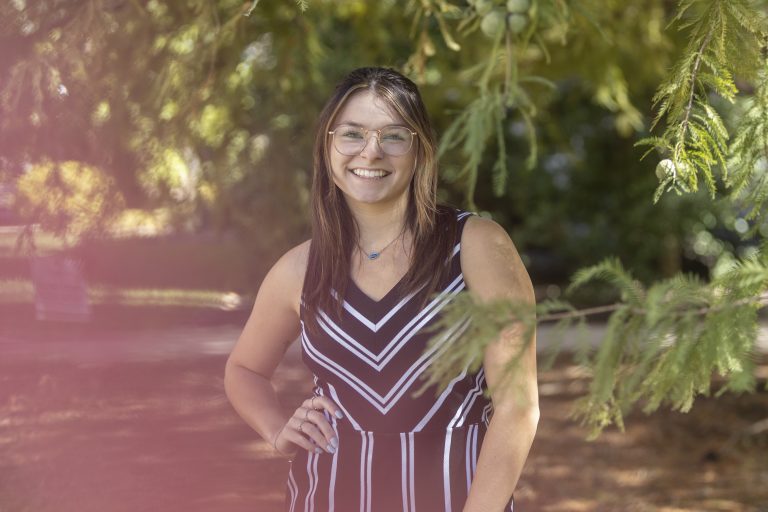Making better decisions

By Theo Schwinke
Students make mistakes. When they do, the peer review board within the Office of Student Accountability & Support is there to help them emerge stronger and wiser.
“Peer review encourages students to reflect on their actions and figure out what they can do better in the future,” said Gabby Deimeke, a graduate assistant in the Office of Student Accountability and Support who served on the peer review board as an undergraduate.
For students looking to build professional skills and promote accountability among their fellow students, the peer review board presents a unique involvement opportunity.
“It’s an opportunity to provide a friendly face to a process that can be very intimidating,” said senior Brenda Durbin, who was co-chair of the peer review board last year. “It gives you a leadership role in directing students to programs that they might not know about otherwise.”
The peer review board is a group of students who hear cases of possible standard of conduct violations. During peer review hearings, a panel of two to four students and an advisor listen to accused students give their side of the story.
“I don’t want it to feel like a punitive system,” said Deimeke. “I want them to realize it’s a learning opportunity in which students can reflect on what they have done to determine how they can make better decisions.”
The board reviews low-level cases, such as alcohol possession, parking violations, and candles in residence halls; more serious violations are referred to Accountability & Support staff members. The board reviews 150 to 200 cases a semester.
When presented with a case, the board sits down with the student concerned to determine if they are in fact responsible for violating policy. If so, sanctions are applied; these are frequently papers in which the student is asked to reflect on their personal values or on the policy they have violated.
“I like the papers to show that they’ve thought about the reasons why these policies are in place and recognize that their actions could affect other students on campus,” Durbin said.
Because getting called before the peer review board can be intimidating, board members try to turn the conversation away from the violation and find ways forward for the student.
“I want to know their major, what they’re involved in on campus and how that’s going for them. Or if they’re not involved yet, what would they like to be involved in,” Deimeke said.
“I get students, especially freshman, who haven’t found a way to get involved yet,” Durbin said. “We can refer students to involvement ambassadors or to clubs that line up with their interests.”
Ultimately, the peer review process gives students an opportunity to reset their approach to college life.
“Students make mistakes but that doesn’t define who they are,” Deimeke said. “They can move forward through that by reflecting on it, learning from it and applying those lessons to their lives.”